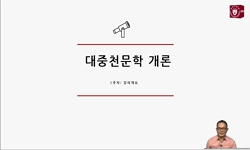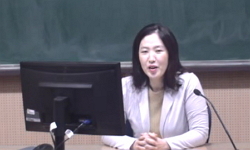ObjectivezzThe aim of this study was to examine 1) public knowledge and perceptions about attention-deficit hyperactivity disorder (ADHD) and 2) factors influencing the public’s decisions to adhere to ADHD pharmacotherapy. MethodszzIn this study, 3...
http://chineseinput.net/에서 pinyin(병음)방식으로 중국어를 변환할 수 있습니다.
변환된 중국어를 복사하여 사용하시면 됩니다.
- 中文 을 입력하시려면 zhongwen을 입력하시고 space를누르시면됩니다.
- 北京 을 입력하시려면 beijing을 입력하시고 space를 누르시면 됩니다.

주의력결핍 과잉행동장애의 약물치료에 대한 일반 대중의 인식 = Public Perspectives on Pharmacological Treatment of Attention-Deficit Hyperactivity Disorder
한글로보기https://www.riss.kr/link?id=A104600758
- 저자
- 발행기관
- 학술지명
- 권호사항
-
발행연도
2014
-
작성언어
Korean
-
주제어
주의력결핍 과잉행동장애 ; 약물치료 ; 인식 ; 대중 ; ADHD ; Pharmacotherapy ; Medication ; Perceptions ; Public
-
등재정보
KCI등재
-
자료형태
학술저널
- 발행기관 URL
-
수록면
134-140(7쪽)
-
KCI 피인용횟수
0
- 제공처
-
0
상세조회 -
0
다운로드
부가정보
다국어 초록 (Multilingual Abstract)
ObjectivezzThe aim of this study was to examine 1) public knowledge and perceptions about attention-deficit hyperactivity disorder (ADHD) and 2) factors influencing the public’s decisions to adhere to ADHD pharmacotherapy.
MethodszzIn this study, 396 participants responded to the internet survey regarding their experiences, beliefs and treatment preferences about ADHD.
Resultszz252 respondents (63.6%) were reluctant to pharmacological treatment of ADHD. The respondents chose the functional impairment of the brain as the main cause of ADHD were favorable to pharmacological treatment and scored significantly high on the ADHD Knowledge Questionnaire. On the other hand, the respondents who regarded ADHD as an overly active personality rather than a disease were skeptical to pharmacotherapy and scored significantly low. The respondents who were acquainted with someone who had been diagnosed with ADHD perceived themselves relatively well informed about ADHD. However, the subjective perception of the degree of knowledge of ADHD was not correlated with the objective score of the ADHD Knowledge Questionnaire.
ConclusionzzThe public is not well informed about ADHD and its treatments. Culturally appropriate psychoeducational strategies based on the media and the internet are needed. Providing biomedical conceptualization of ADHD to the public may aid with treatment decisions and promote adherence to pharmacological treatment.
국문 초록 (Abstract)
본 연구에서는 ADHD에 대한 대중의 인식과 그들이 ADHD의 약물 치료를 선택하는 데 영향을 미치는 인자를 파악하기 위하여 인터넷 설문 조사에 응답한 396명의 자료를 분석하였다. 응답자들이 ...
본 연구에서는 ADHD에 대한 대중의 인식과 그들이 ADHD의 약물 치료를 선택하는 데 영향을 미치는 인자를 파악하기 위하여 인터넷 설문 조사에 응답한 396명의 자료를 분석하였다.
응답자들이 ADHD에 관한 지식을 얻은 주요 경로는 신문, 방송과 같은 대중 매체와 인터넷으로 나타났다. 3분의 1 이상 (36.6%)의 응답자들이 ADHD의 주요 병인으로 ‘부모의 양육태도’를 선택하였다. ADHD를 진단 받더라도 약물을 사용을 하지 않겠다고 대답한 경우는 63.6%였다.
ADHD의 병인으로 ‘뇌기능장애’를 선택한 응답자들은 그 외의 병인을 선택한 경우에 비하여 약물요법에 호의적이었으며 ADHD에 관한 지식을 측정하는 문항에 대한 평균 점수가 유의하게 높았다. 반면에 ADHD는 질병이 아니라 과도하게 활동적인 성격이라고 대답한 응답자들은 약물요법에 비호의적이었으며 지식을 측정하는 문항에 대한 평균 점수가 유의하게 낮았다.
본인이나 주변의 인물 중에 ADHD를 진단 받은 인물이 있는 응답자는 본인이 ADHD에 대하여 비교적 잘 알고 있다고 생각하였다. 그러나 본인이 주관적으로 평가하는 ADHD에 대한 지식의 수준과 객관적으로 평가한 실제 지식의 수준은 상관 관계가 없는 것으로 나타났다.
ADHD 아동에게 적절한 진단과 치료를 받을 수 있는 기회를 제공하기 위해서는 대중을 대상으로 ADHD의 생물의학적 병인론을 바탕으로 한 교육이 필요하며 이를 위하여 대중매체와 인터넷을 활용하는 것이 효율적일 것이다
참고문헌 (Reference)
1 Broom A, "Virtually he@lthy: the impact of internet use on disease experience and the doctor-patient relationship" 15 : 325-345, 2005
2 Daley KC, "Update on attention-deficit/hyperactivity disorder" 16 : 217-226, 2004
3 Gustafsson P, "Treatment of ADHD with amphetamine: short-term effects on family interaction" 12 : 83-91, 2008
4 Cornell-Swanson L, "The use of stimulant medication for treatment of attention-deficit/hyperactivity disorder: a survey of school social workers’ knowledge, opinions/attitudes, and experience" 29 : 62-82, 2005
5 Frankenberger W, "The use of stimulant medication for treatment of attention-deficit/hyperactivity disorder: A survey of school psychologists’ knowledge, attitudes, and experience" 29 : 132-151, 2001
6 Diller LH, "The run on Ritalin. Attention deficit disorder and stimulant treatment in the 1990s" 26 : 12-18, 1996
7 Coghill D, "The impact of medications on quality of life in attention-deficit hyperactivity disorder: a systematic review" 24 : 843-866, 2010
8 Canino G, "The DSM-IV rates of child and adolescent disorders in Puerto Rico: prevalence, correlates, service use, and the effects of impairment" 61 : 85-93, 2004
9 Breggin PR, "Talking back to Ritalin: what doctors aren’t telling you about stimulants for children" Common Courage Press 1998
10 Powers RL, "Stimulant treatment in children with attention-deficit/hyperactivity disorder moderates adolescent academic outcome" 18 : 449-459, 2008
1 Broom A, "Virtually he@lthy: the impact of internet use on disease experience and the doctor-patient relationship" 15 : 325-345, 2005
2 Daley KC, "Update on attention-deficit/hyperactivity disorder" 16 : 217-226, 2004
3 Gustafsson P, "Treatment of ADHD with amphetamine: short-term effects on family interaction" 12 : 83-91, 2008
4 Cornell-Swanson L, "The use of stimulant medication for treatment of attention-deficit/hyperactivity disorder: a survey of school social workers’ knowledge, opinions/attitudes, and experience" 29 : 62-82, 2005
5 Frankenberger W, "The use of stimulant medication for treatment of attention-deficit/hyperactivity disorder: A survey of school psychologists’ knowledge, attitudes, and experience" 29 : 132-151, 2001
6 Diller LH, "The run on Ritalin. Attention deficit disorder and stimulant treatment in the 1990s" 26 : 12-18, 1996
7 Coghill D, "The impact of medications on quality of life in attention-deficit hyperactivity disorder: a systematic review" 24 : 843-866, 2010
8 Canino G, "The DSM-IV rates of child and adolescent disorders in Puerto Rico: prevalence, correlates, service use, and the effects of impairment" 61 : 85-93, 2004
9 Breggin PR, "Talking back to Ritalin: what doctors aren’t telling you about stimulants for children" Common Courage Press 1998
10 Powers RL, "Stimulant treatment in children with attention-deficit/hyperactivity disorder moderates adolescent academic outcome" 18 : 449-459, 2008
11 Bauermeister JJ, "Stimulant and psychosocial treatment of ADHD in Latino/Hispanic children" 42 : 851-855, 2003
12 Marcus SC, "Stimulant adherence and academic performance in urban youth with attention-deficit/hyperactivity disorder" 50 : 480-489, 2011
13 DeGrandpre RJ, "Ritalin nation: rapid-fire culture and the transformation of human consciousness" WW Norton & Company 2000
14 McLeod JD, "Public knowledge, beliefs, and treatment preferences concerning attention-deficit hyperactivity disorder" 58 : 626-631, 2007
15 McLeod JD, "Public attitudes toward the use of psychiatric medications for children" 45 : 53-67, 2004
16 Katusic SK, "Psychostimulant treatment and risk for substance abuse among young adults with a history of attention-deficit/hyperactivity disorder: a population-based, birth cohort study" 15 : 764-776, 2005
17 Jensen PS, "Psychoactive medication prescribing practices for U.S. children: gaps between research and clinical practice" 38 : 557-565, 1999
18 Pliszka S, "Practice parameter for the assessment and treatment of children and adolescents with attention-deficit/hyperactivity disorder" 46 : 894-921, 2007
19 Ahmed R, "Parents’ Perspectives About Factors Influencing Adherence to Pharmacotherapy for ADHD"
20 Olfson M, "National trends in the treatment of attention deficit hyperactivity disorder" 160 : 1071-1077, 2003
21 MTA Cooperative Group, "National Institute of Mental Health Multimodal Treatment Study of ADHD follow-up: changes in effectiveness and growth after the end of treatment" 113 : 762-769, 2004
22 MTA Cooperative Group, "National Institute of Mental Health Multimodal Treatment Study of ADHD follow-up: 24-month outcomes of treatment strategies for attention-deficit/hyperactivity disorder" 113 : 754-761, 2004
23 Peters K, "Mothers’ experiences of parenting a child with attention deficit hyperactivity disorder" 65 : 62-71, 2009
24 "Moderators and mediators of treatment response for children with attention-deficit/hyperactivity disorder: the Multimodal Treatment Study of children with Attention-deficit/hyperactivity disorder" 56 : 1088-1096, 1999
25 Schlesinger MJ, "Medical professionalism under managed care: the pros and cons of utilization review" 16 : 106-124, 1997
26 Summers JA, "Laypeople’s attitudes toward drug treatment for behavioral control depend on which disorder and which drug" 26 : 258-263, 1987
27 Bekle B, "Knowledge and attitudes about attention-deficit hyperactivity disorder (ADHD): a comparison between practicing teachers and undergraduate education students" 7 : 151-161, 2004
28 Sadock BJ, "Kaplan & Sadock’s synopsis of psychiatry: behavioral sciences/clinical psychiatry" Wolter Kluwer/Lippincott Williams & Wilkins 2007
29 Barkley RA, "International consensus statement on ADHD. January 2002" 5 : 89-111, 2002
30 Jerome L, "Graduating teachers’ knowledge and attitudes about attention-deficit hyperactivity disorder: a comparison with practicing teachers" 44 : 192-, 1999
31 Underhill C, "Getting a second opinion: health information and the Internet" 19 : 65-69, 2008
32 Bussing R, "Explanatory models of ADHD do they differ by ethnicity, child gender, or treatment status?" 6 : 233-242, 1998
33 Ghanizadeh A, "Educating and counseling of parents of children with attention-deficit hyperactivity disorder" 68 : 23-28, 2007
34 Goldman LS, "Diagnosis and treatment of attention-deficit/hyperactivity disorder in children and adolescents. Council on Scientific Affairs, American Medical Association" 279 : 1100-1107, 1998
35 Olaniyan O, "Community perspectives of childhood behavioral problems and ADHD among African American parents" 7 : 226-231, 2007
36 Jensen PS, "Closing the evidence-based treatment gap for children’s mental health services: what we know versus what we do" 2 : 43-50, 2002
37 Kos JM, "Children with attention deficit hyperactivity disorder and their teachers: a review of the literature" 53 : 147-160, 2006
38 Berger I, "Attitudes toward attention-deficit hyperactivity disorder (ADHD) treatment: parents’ and children’s perspectives" 23 : 1036-1042, 2008
39 Mayes R, "ADHD and the rise in stimulant use among children" 16 : 151-166, 2008
40 Kim HJ, "A study on early child parent’s recognition of ADHD" Ewha Womans University 2008
41 Son JS, "A study of preschooler teachers’ recognition and the teaching realities on ADHD" Daegu Univerisy 2005
42 "A 14-month randomized clinical trial of treatment strategies for attention-deficit/hyperactivity disorder. The MTA Cooperative Group. Multimodal Treatment Study of Children with ADHD" 56 : 1073-1086, 1999
동일학술지(권/호) 다른 논문
-
- 대한정신약물학회
- 서미경
- 2014
- KCI등재
-
임신 중 정신약물 사용이 조산 및 신생아 발달에 미치는 영향에 대한 연구
- 대한정신약물학회
- 이의윤
- 2014
- KCI등재
-
양극성장애 입원 환자에서 약물 사용의 변화: 일 대학병원에서 1998~2001년과 2009~2012년의 비교
- 대한정신약물학회
- 차지민
- 2014
- KCI등재
-
우울증 환자의 자살 사고에 우울감과 정서지능이 미치는 영향
- 대한정신약물학회
- 박희정
- 2014
- KCI등재
분석정보
인용정보 인용지수 설명보기
학술지 이력
| 연월일 | 이력구분 | 이력상세 | 등재구분 |
|---|---|---|---|
| 2019 | 평가예정 | 신규평가 신청대상 (신규평가) | |
| 2018-12-01 | 평가 | 등재후보 탈락 (계속평가) | |
| 2017-12-01 | 평가 | 등재후보로 하락 (계속평가) |  |
| 2013-01-01 | 평가 | 등재 1차 FAIL (등재유지) |  |
| 2010-01-01 | 평가 | 등재학술지 유지 (등재유지) |  |
| 2008-01-01 | 평가 | 등재학술지 유지 (등재유지) |  |
| 2005-01-01 | 평가 | 등재학술지 선정 (등재후보2차) |  |
| 2004-12-10 | 학술지명변경 | 외국어명 : 미등록 -> The Korean Journal of Psychopharmacology |  |
| 2004-01-01 | 평가 | 등재후보 1차 PASS (등재후보1차) |  |
| 2002-07-01 | 평가 | 등재후보학술지 선정 (신규평가) |  |
학술지 인용정보
| 기준연도 | WOS-KCI 통합IF(2년) | KCIF(2년) | KCIF(3년) |
|---|---|---|---|
| 2016 | 0.19 | 0.19 | 0.19 |
| KCIF(4년) | KCIF(5년) | 중심성지수(3년) | 즉시성지수 |
| 0.27 | 0.25 | 0 | 0 |




 KCI
KCI






